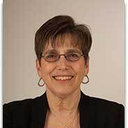

2) Sable, Marjorie R., Fran Danis, Denise L. Mauzy, and Sarah K. Gallagher. "Barriers to Reporting Sexual Assault for Women and Men: Perspectives of College Students." Journal of American College Health. N.p., Nov. 2006. Web. 15 Oct. 2016.
3) In this article, the authors asked college students both male and female about barriers that prevent victims from reporting their assaults. They found that despite the rape reform movement, barriers are still much the same as they were thirty years ago. The barriers were rated as "(1) shame, guilt, embarrassment, not wanting friends and family to know; (2) concerns about confidentiality; and (3) fear of not being believed". Some students, both male and female, felt that a fear of being perceived as gay was a barrier for male victims.
4) Marjorie R Sable, DRPH, MSW, MPH works at the University of Missouri, Columbia.
Fran Danis is a Doctor of Philosophy at the University of Texas, Arlington.
Denise L Mauzy and Sarah K Gallagher both worked at the University of Missouri, Columbia.
5) Barrier: Something that prevents a rape victim from reporting their rape or telling others about their rape.
6) "The lack of attention to male sexual assault victimization has allowed society to dismiss the problem as a behavior that occurs in the gay community or prison environment." (158)
"Exploring gender differences about the perceived importance of barriers could broaden our understanding of factors that contribute to underreporting and could help to distinguish commonalities as well as differences in barriers to reporting." (158)
"Although both female and male victims experience self-blame and shame, often the reason for this reaction has a gendered contextual meaning ... The high score that fear of being judged as gay received by the respondents may acknowledge society's consideration that male rape occurs in the gay, not the general, community." (160)
7) This study helped me to further understand some of the specific reasons why victims, specifically male victims, may not report their rape, and in this case the focus is on a fear of being perceived as gay to be a big barrier. This reinforces my thought that sexual orientation and gender role play a massive part in assaults going unreported. To a large part of the public, male rape is pigeonholed into the gay community or prison, ignoring the fact that sexual assault on males occurs on a much larger scale. Victims outside of those specific communities are erased and ignored, making it extremely unlikely for them to ever report.
No comments:
Post a Comment